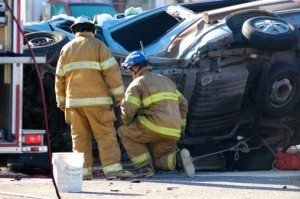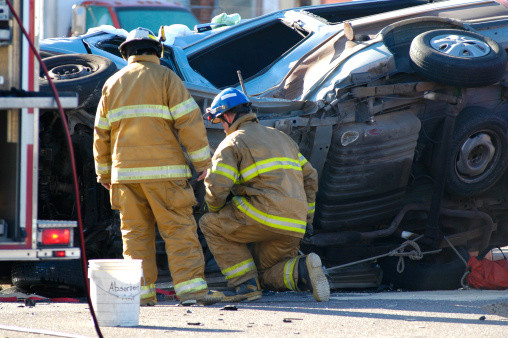 There are more than 600 rollover accidents in Florida every year – and more than 80 percent of them result in serious injury or death.
There are more than 600 rollover accidents in Florida every year – and more than 80 percent of them result in serious injury or death.
On average, one person is hurt or killed in a Florida rollover accident every day. Some of these victims will be entitled to recover compensation for medical bills, lost income and other losses.
The family of a teenage passenger killed in a Miami-Dade rollover wreck won $19 million in a jury verdict handed down this year. The accident occurred in 1997 when the driver of a Ford Explorer fell asleep at the wheel, ran off the road and rolled over while trying to regain control of the vehicle.
The teen’s family filed a wrongful death lawsuit alleging negligence and product liability against Ford Motor Company in 1999. The complaint alleged that Ford negligently designed and manufactured the Explorer with inadequate handling and stability control such that it rolled over on a smooth roadway.
Over the next 14 years, the case went to trial three different times, once ending in a mistrial and once ending in a $61 million verdict that was overturned on appeal.
At the third trial, the jury awarded the family $19 million: $10 million for past pain and suffering and $9 for future pain and suffering.
The jury found that there was a design defect with the handling and stability of the Ford Explorer.
The case is Edwards, as Personal Representative of the Estate of Lance Crossman Hall vs. The Ford Motor Company (Circuit Court of Miami-Dade County, Florida (99-9450-CA-22; Hon. Jennifer Bailey).
$19 Million Verdict in Florida Rollover Trial
Here are some takeaways from the case:
- The 17-year-old victim was supposedly in a reclined position and was wearing a seatbelt and a shoulder harness when the rollover occurred. Nonetheless, he was ejected when the vehicle rolled over.
- The complaint alleged that Ford mounted Firestone P23575R15 ATX tires on the Explorer, which were already identified to be unstable and prone to rollovers due to its high center of gravity.
- The family also alleged that the Explorer’s seat belt/harness system was negligently designed and ineffective when the passenger was in a reclined position. The jury did not agree with this allegation.
- One witness, a Ford engineer who worked on the Explorer in 1989, said he suggested design changes to prevent the vehicle from rolling over on dry pavement, and that Ford allegedly rejected his proposals. For one decade, his changes were not incorporated.
- Ford’s defense was that the accident was caused by the negligence of the driver.
- Expert witnesses in the case included a Vehicle Stability and Accident Reconstruction expert, a Vehicle Stability and Rollover expert, a Human Factors and Warnings expert, a Biomechanics expert, a Dynamics and Design Analysis expert, a Failure Analysis expert and a Vehicle Engineering and Biomechanics expert.
Sources:
- Lexis/Nexis
http://www.lexisnexis.com/florida-legal-periodicals/florida-jury-verdict-reporter/miami-dade-county.aspx - Florida Department of Transportation
http://www.dot.state.fl.us/





